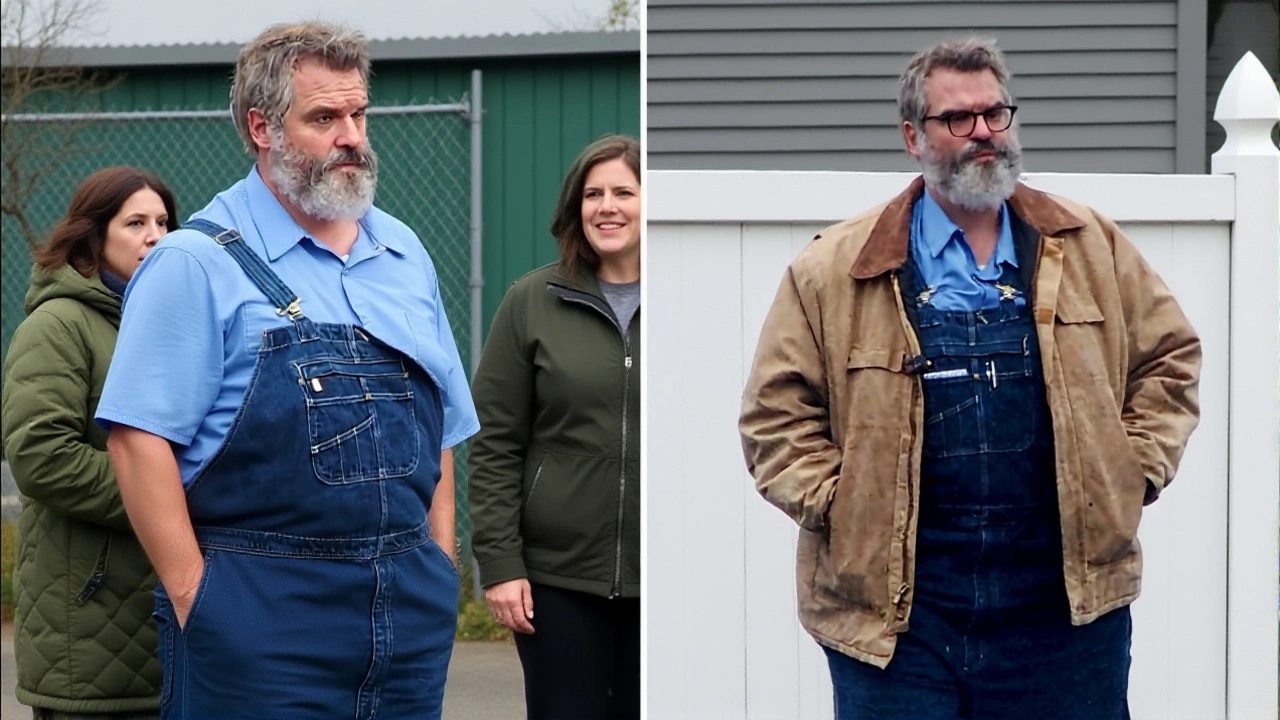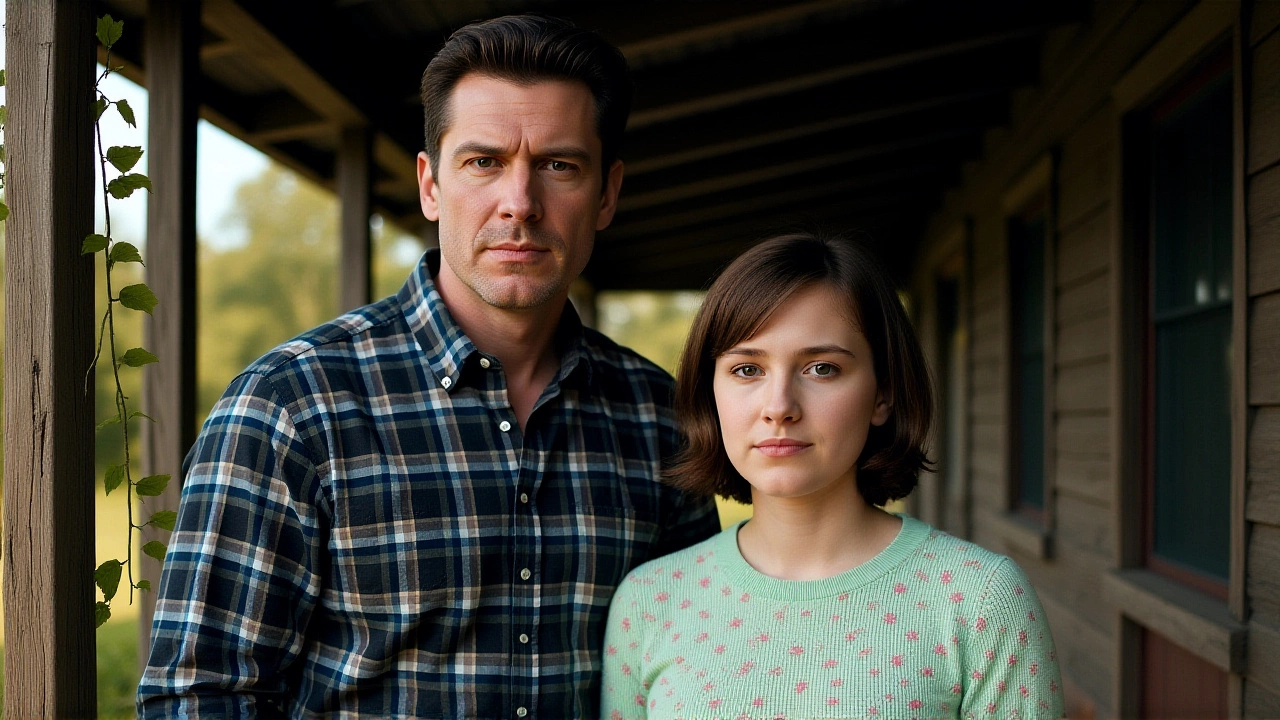Just weeks before the final season of 'Stranger Things' premieres, a quiet storm erupted behind the scenes: Millie Bobby Brown, 21, allegedly filed formal complaints against her longtime co-star David Harbour, claiming persistent bullying on set. The allegations, first reported by The Mail on Sunday on November 2, 2025, and amplified by Entertainment Tonight the next day, triggered a months-long internal review by Netflix—one that reportedly spanned "pages and pages of accusations." Yet, despite the gravity of the claims, no legal action followed. Instead, production moved forward—with Brown accompanied by a personal representative during filming. The final season, split into two parts, drops part one on November 26, 2025, as the world braces for the end of a cultural phenomenon.
What Happened Behind the Scenes?
The timeline is precise: filming for season five began in early 2025, after the cast wrapped the series finale in February of that year. According to sources cited by Entertainment Tonight, Brown submitted her formal complaints before cameras rolled. The allegations, described by The Mail on Sunday as "non-sexual," centered on patterns of behavior that made her feel unsafe and disrespected. One insider told Entertainment Tonight the investigation was "meticulous," involving interviews with crew members, production logs, and even text messages. "It wasn’t one incident," the source said. "It was a pattern—comments, exclusion, public corrections that crossed the line." What’s unusual is the scale. Most on-set disputes are resolved quickly or buried. But here, Netflix, known for its tight-lipped approach, opened its internal HR files for months. That alone signals how seriously they took it. The result? A personal representative—likely a trusted advisor or production safety officer—was assigned to stay with Brown during every shoot day. A rare accommodation, reserved for extreme cases. "It’s not punishment," another source clarified. "It’s protection. They didn’t want her walking into a room alone if she didn’t feel safe."The Relationship: Fractured or Focused?
Here’s the twist: everyone insists the bond between Brown and Harbour isn’t broken. "There’s no bad blood," an unnamed source told Entertainment Tonight. "They’ve been through hell together. They still text. They still laugh." That sentiment echoes in Brown’s own words from a February 2025 interview, filmed just after wrap: "I’ve always been drawn to really fascinating, intelligent, fierce women." She didn’t name Harbour, but the subtext was clear—she respects strength, even when it’s messy.Harbour, for his part, has said nothing publicly. No statement. No social media post. No interview. That silence speaks louder than any denial. Meanwhile, Netflix declined to comment on the investigation, the accommodations, or the allegations—a move that’s both standard and telling. They’re protecting their asset: the show. And right now, the show is more valuable than any single controversy.

Why This Matters Beyond the Set
This isn’t just gossip. It’s a case study in how entertainment companies handle workplace misconduct when the stars are global icons. Brown, who became a household name at 12, has grown up under the glare of fame. Harbour, a seasoned actor with decades in theater and film, carries a reputation for intensity. Their dynamic—mentor? rival? co-conspirator?—was always part of the show’s magic. But now, we see the cost of that magic: emotional labor, unspoken hierarchies, and the pressure to keep smiling for the cameras.Netflix’s response—internal investigation, no public discipline, no legal fallout—reflects a growing industry trend. Companies are moving away from immediate termination or public shaming, opting instead for "restorative" measures: mediation, accompaniment, mandatory sensitivity training. The goal isn’t always punishment. Sometimes, it’s preservation. Of the show. Of the brand. Of the relationships that made it work.
And yet, the absence of legal action doesn’t mean the harm didn’t happen. It means the system chose to contain it. Brown didn’t sue. She didn’t walk away. She stayed—and fought for her space. That’s not weakness. It’s strategy.
What Comes Next?
The final season drops on November 26, 2025. Fans will watch Eleven’s last stand, Hawkins’ final breath, and the quiet moments between characters who’ve grown up on screen. But now, viewers will also see Brown and Harbour together—knowing what we know. Will the tension show? Will the camera linger too long on a glance? Will the audience feel something off?It’s possible. But more likely, the editing will smooth it over. Because that’s what Netflix does best: turn chaos into catharsis. The show’s legacy isn’t just about monsters and mind flayers. It’s about kids who became stars, and stars who became family. Even if that family had cracks.

Behind the Scenes: The Real Cost of 'Stranger Things'
The series began in 2016 as a nostalgic experiment. It ended as a $300 million global empire. For Brown, it meant leaving childhood behind. For Harbour, it meant reinventing his career. For the crew, it meant years of 16-hour days, weekend shoots, and emotional burnout. The allegations, if true, are a symptom of a system that demands perfection from people still figuring out who they are."It’s bittersweet, of course, because it changed all of our lives," one cast member told Entertainment Tonight. That line—simple, raw, true—is the real headline. This isn’t about who said what to whom. It’s about what happens when a dream becomes a machine. And someone’s still trying to keep it running, even if the gears are grinding.
Frequently Asked Questions
Did Netflix take any disciplinary action against David Harbour?
No formal disciplinary action was publicly announced. Netflix declined to comment, and no termination, suspension, or public reprimand occurred. However, the internal investigation led to a tangible accommodation: Millie Bobby Brown was assigned a personal representative during filming, suggesting Netflix prioritized her safety over public consequences for Harbour.
Why didn’t Millie Bobby Brown pursue legal action?
Legal action would have delayed or derailed the final season, potentially costing Netflix millions and exposing Brown to years of media scrutiny. With the relationship described as "salvageable" by insiders and no sexual misconduct alleged, an internal resolution with accommodations likely felt like the most practical path forward—for her, the studio, and the show’s legacy.
What does having a personal representative on set mean?
It means Brown had a trusted individual—possibly a producer, HR liaison, or personal advisor—present during all filming to ensure her emotional safety, intervene if tensions rose, and serve as a buffer between her and others on set. This is a rare but not unheard-of measure in high-pressure environments, especially when vulnerable talent is involved.
How did the cast and crew react to the allegations?
No public statements were made by other cast members. However, sources indicate the production team was deeply affected, with some crew members describing a "tense but professional" atmosphere during season five. The fact that filming completed on schedule suggests most kept their focus on the work, even as the underlying tension lingered.
Is this the first time Harbour has faced workplace complaints?
No public complaints have surfaced before this incident. Harbour has a long history in theater and film, often praised for his intensity and dedication. While his acting style can be demanding, there’s no record of prior formal allegations. This situation appears to be an isolated incident tied to the unique pressures of 'Stranger Things' final season.
Will this affect the reception of season five?
It likely won’t impact viewership—'Stranger Things' remains a cultural juggernaut. But for fans who followed Brown’s journey since age 12, knowing the behind-the-scenes tension may add a layer of melancholy to her final scenes. The show’s power has always been emotional authenticity. Now, viewers may wonder: how much of that was real?
